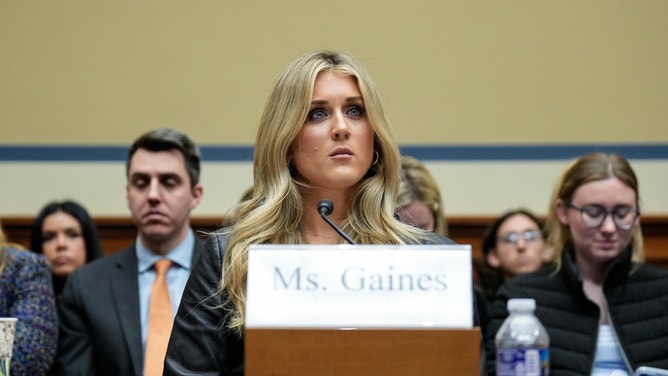Riley Gaines Rips ACLU Response To West Virginia Ruling On Transgender Athletes
A United States Circuit Court of Appeals ruled Tuesday that a West Virginia law that bars biological boys from competing on girls' sports teams cannot be enforced. The ACLU – which brought the case to court – proudly posted the result on its social media pages, and OutKick contributor Riley Gaines fired back.
According to the Associated Press, "the court said the law cannot lawfully be applied to a 13-year-old girl who has been taking puberty-blocking medication and publicly identified as a girl since she was in the third grade."
The court added that the law violates Title IX, which was originally created to protect women's sports. It's interesting to see this title now being used to allow biological males who change their gender identity to female to compete in girls' and women's sports.
"This is a tremendous victory for our client, transgender West Virginians, and the freedom of all youth to play as who they are," said Joshua Block, Senior Staff Attorney for the ACLU’s LGBTQ & HIV Project in a press release.
Gaines replied to the ACLU's post on X (formerly Twitter), saying that "girls don't want this." She included screenshots from messages she'd received from female athletes in West Virginia. One of them says that several players on her team plan to "step out" of their event on Thursday.

OutKick's Riley Gaines fired back at the ACLU over the ruling of a US Appeals Court on a West Virginia law on transgender athletes.
(Drew Angerer/Getty Images)
Gaines says the messages all came from female athletes who now have to compete against this "boy."
The debate about including transgender girls and women (biological men) in women's sports is a hot-button issue. OutKick faced immense backlash for asking South Carolina women's basketball head coach Dawn Staley about it.
Staley said that transgender women should be free to compete in women's college basketball.
Many people argued that the time and place of the question were wrong. However, as the U.S. Court of Appeals ruling shows, there isn't a wrong time and place to ask about an issue that continues to come up across the country.
Over the weekend, a biological male high school sprinter took second place in two girls' events in Oregon. That athlete would have finished close to last in the same boys' events.
Now that the Appeals court made its ruling, expect this case to continue its climb through the United States judicial system. Ultimately, the Supreme Court is likely going to have to rule on this important issue.